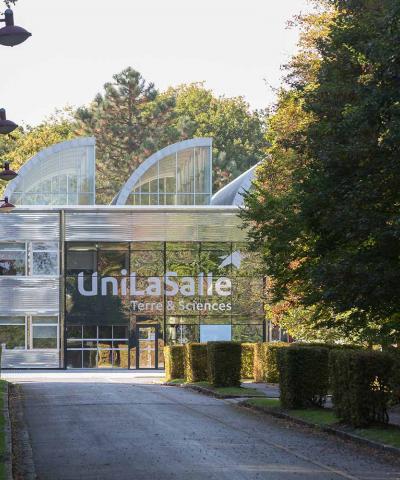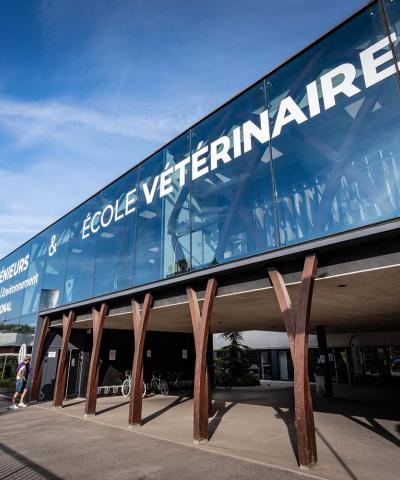Activating sustainable economies and organizations on a regional scale.
The challenges of economic development and regional development
This path aims to achieve agro-economic, socio-technical and organizational balances that strengthen :
- territorial vitality
- their autonomy
- their resilience through the creation of value chains, circuits and added values.
It aims to train agricultural development engineers capable of solving agro-eco-environmental problems through a concerted approach at the territorial level. This requires a detailed understanding of the organization, functioning and development dynamics of territories, leading to the elaboration of action plans and their coordination on behalf of public and private players in charge of and governing territorial development.
Course details
Agrosystems and cropping systems major
The major corresponds to course-specific teaching. It consists of course sequences and projects.
- In-depth studies: population genetics, physiology/ecophysiology, plants and communities, soil functioning, etc.
- Reference production methods and tools: factorial experimentation, modeling, simulation, etc.
- Accompanying method: autumn field trip
minors
Each semester includes 2 blocks dedicated to minors, corresponding to 54 hours of complementary teaching, enabling students to complete their training in a related field.
Several minors are offered on the Rouen campus, some of which require on-site travel (others can be taken by distance learning).
Some examples of minors
Block 1: Introduction to business Analytics / Global Environmental Issues / Bioeconomy and societal issues / Agricultural sectors: policies, trading and securing prices / Innovating, undertaking and combating creaticidal attitudes / Plants and population...
Block 2: New trends in consumer behavior / Business Intelligence / Economic models / Digital transition / Transformation and business model of digital platforms / Scientific approach - Research - Beginner...
Major Territory projects: diagnosis and action plan
The aim of this major is to acquire, through practical experience, the methods, tools and know-how needed to carry out territorial diagnostics, on the basis of which an action plan will be drawn up to promote the sustainability of the region.
- Diagnosis of development policies and organization of agricultural sectors
- Agronomic diagnosis of agricultural landscapes and organizations, analysis of local stakeholder strategies
- Prospective and risk analysis for priority actions
- Development and programming of a concerted action plan
Minors
Each semester includes 2 blocks dedicated to minors, corresponding to 54 hours of complementary teaching, enabling students to complete their training in a related field.
Several minors are offered on the Rouen or Rennes campuses, some of which require on-site travel (others can be taken by distance learning).
Some examples of minors
Block 1: LCA basics and fundamentals / Energy sustainability in farms / Project management: from forecasting to agile project management / Advanced spatial analysis / Mindful, Nature Inspired and Regenerative Entrepreneurship - Climate International Week / Working and communicating in a French-speaking environment...
Block 2: Global trade in agriculture and agri-food / Marketing decisions and actions / Circular economy and bioeconomy / Immersive entrepreneurship and design thinking / Farming systems for transitions / Modeling at different scales (farm and animal)...
In semester 9, you can choose to follow your own path, by selecting from :
- the main major of the Territorial Development and Leadership pathway, which takes a more in-depth look at this field: Projets de territoire : coordination et animation (Beauvais campus)
- one or more opening majors, designed to broaden your skills in another field:
- Agriculture and Society (Beauvais campus)
- Urban Agriculture and Green Cities (Rouen campus)
- Intrapreneurship, entrepreneurship and innovation (Beauvais campus)
- a semester, a double degree or a degree-granting stay in France or abroad (from 12 to 18 months for a double degree or a degree-granting stay)
The final project is based on an in-company work placement or research placement for students, or on the long period spent in a company for apprentices.
A final dissertation is written and presented orally.
What career options are available after completing the Territorial Development and Animation program?
The Development and Territorial Animation pathway enables you to work in the public sector in EPCIs (agglomerations, communes, countries), in a design office/audit firm, in an agricultural collection and consultancy organization, in a company managing biomass and/or renewable energy supply circuits, or in agricultural production and the agri-food industry.
some professions
- Renewable energy project manager
- Territory project coordinator
- Territorial agricultural engineer
- Environmental & territorial risk management manager
- Rural network coordinator
They welcome our engineers
ATER ENVIRONNEMENT, H2AIR S.A.S, SYNDICAT DÉPARTEMENTAL DISTRIBUTION DES EAUX DE L’AUBE, AGGLOMÉRATION DU DOUAISIS – SERVICE TRANSITION AGRICOLE ET ALIMENTAIRE, COMMUNAUTÉ DE COMMUNES DU PLATEAU PICARD – SERVICES AGRICULTURE, ENVIRONNEMENT, COOPÉRATIVE TERRENA, SIAH HAUTE VALLÉE DE L’AVEYRON, CHAMBRES D’AGRICULTURE
Alumni
- Fanny CHEF (154) - Renewable Energy Project Manager, ATER Environnement
- Claire LEROY (154) - Project Manager, Innovative local development methods / Projects and local areas manager, H2AIR S.A.S.
- Rodin TAMBURINI (156) - Senior Engineer and Territorial Coordination Coordinator, Syndicat départemental de la distribution des eaux de l'Aube (SDDEA)




